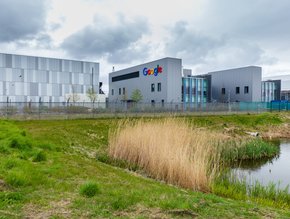Colt commits to achieving global net zero emissions by 2030

Colt Group, which includes Colt Technology Services and Colt Data Centre Services (DCS), has today announced its commitment to achieving global net zero carbon for all its own operations by 2030. As a key player in the technology industry, this forms part of its journey to accelerate the transition to a zero-carbon economy through developing new and existing technologies.
The company says it has set comprehensive, science-based emissions reduction targets approved by the Science-Based Targets Initiative (SBTi). It will reduce its Scope 1 and Scope 2 emissions by 46% by 2030 and work closely with suppliers to significantly reduce Scope 3 emissions throughout its supply chain, to limit global warming to well below 2°C by 2030. The move is embedded in the Group’s sustainability strategy, which is core to its DNA and future business strategy.
What are Colt Group’s emissions targets?
“As a business, we understand the urgency of taking action to drive positive changes in the technology industry and take full accountability for our emissions. I am thrilled to mark this milestone and commit to science-based targets,” said Keri Gilder, CEO at Colt Technology Services. “Colt’s goal line is clear: we aim to become a market leader in sustainability by not only reducing our own emissions but also assisting our customers in their own sustainability journeys.”
The extensive targets Colt Group have set, include interim targets, demonstrating Colt’s credibility, and commitment to immediate action. These include:
- 75% renewable electricity for all sites globally by 2023
- 93% of supply chain emissions aligned to 1.5C SBT by 2025
- 38% electric vehicles in company fleet by 2025 and 75% by 2030
- 100% switch to renewable gas by 2030
Colt’s climate strategy will focus on internal carbon reductions across its operations and services. This will mean measuring and disclosing the Group’s climate impact and reducing carbon emissions in line with what science says is needed. Any emissions the Group cannot reduce, it will finance through high-integrity carbon removal offsetting.
“Our business has a substantial impact on the planet, and I am delighted to announce that we are embarking on our journey to achieve global net-zero carbon emissions for all of our operations in Colt DCS by 2030,” said Niclas Sanfridsson, CEO at Colt Data Centre Services. “This is just the beginning, our sustainability strategy will continue to ensure we are a key partner of choice for the biggest hyperscale customers in the world. I have full confidence that we are well-equipped to take ambitious action in the decade ahead to meet the Paris Agreement and the Global Goals, having responded to the biggest industry challenges over the last 20 years.”






